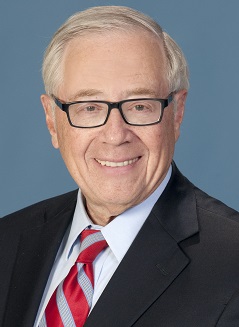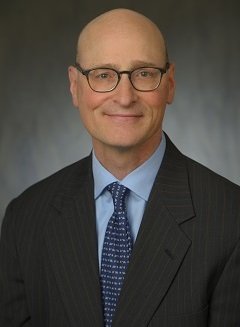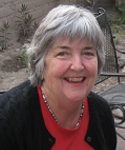Among all the challenges that accompany a diagnosis of colon, rectal, or bladder cancer, learning to live with an ostomy can be the most difficult.
Now, the Arizona Telemedicine Program (ATP), The University of Arizona, and three other institutions – the University of Pennsylvania, the City of Hope/Beckman Research Institute, and Yale University – are taking part in a randomized clinical trial to see if telehealth can be effective in helping ostomy patients adjust to the lifestyle changes they face.
The study, “Ostomy Telehealth for Cancer Survivors,” is funded with a $2.1 million grant from the Patient-Centered Outcomes Research Institute (PCORI), a non-profit organization established by Congress to support research that aims to help patients and other stakeholders (caregivers, clinicians, insurers, policymakers) make informed decisions when faced with healthcare choices.
“[Standard] post-operative care does not prepare cancer survivors for ostomy self-management, behavior change, psychological support, or healthy living, which are necessary to ensure optimal health-related quality of life,” according to PCORI’s project summary.
The PCORI-funded study is designed to change all that. It has two major goals:
- To improve patient ostomy self-management, knowledge and skills, and health-related quality of life. This will be determined by comparing patients’ surveys before the program starts, at the end of the program, and six months after the end.
- To see if patients enrolled in the study spend fewer family resources and utilize less medical care compared with those not in the program.
Patients enrolled in the study are randomized to standard care, or a series of telehealth sessions that include ostomy nurse educators, along with experienced ostomy patients who can provide peer support for the study patients. Sessions often include five or six patients enrolled in the study.

The ATP, based at the University of Arizona College of Medicine – Tucson, under the direction of founding director Ronald S. Weinstein, MD, is providing the telehealth infrastructure, including equipment and engineers, one or two of whom sit in on every session to handle any computer problems or questions the study participants may have.
City of Hope, the University of Pennsylvania and Yale University are the sites enrolling patients for this project.
“We’ve been studying ostomy patients for a long time as a research team,” says Robert S. Krouse, MD, Chief of surgical services, Cpl. Michael J. Crescenz VA Medical Center, and the study’s principal investigator through the Department of Surgery at the University of Pennsylvania.

“We were able to develop a curriculum to address issues that ostomy patients have and deliver the curriculum in a group setting with nurses and peer ostomy patients. We tested it in Tucson at the University of Arizona Cancer Center, and found that patients really got a lot out of the program, but getting them there was difficult, because they were sick from chemo or had to come from far away.”
The patients were willing to see their doctors for treatment, Dr. Krouse says, but coming in to the cancer center for the ostomy program sessions became more difficult.
“We decided we needed a better way to communicate and facilitate participation,” Dr. Krouse says. “I knew about Dr. Weinstein’s telehealth program, and we decided this was the way to go.
“Now we are finding that what we had hypothesized was true,” Dr. Krouse adds. “This method does facilitate participation, and we are enrolling quicker than anticipated, which is nearly unheard of with clinical trials. We are finding that patients are really enjoying the sessions, and we are also finding that the peers are really enjoying the program as well, helping others and getting benefits themselves.”
“It’s an honor to have the Arizona Telemedicine Program involved in this important study,” Dr. Weinstein says.
“Dr. Krouse and his team are an inspiration. Their compassion and their attention to detail provide a practice model for other physician researchers.
“Weaving compassion into healthcare routines is an important addition to cancer patients’ clinical care.”
The next step of the study, Dr. Krouse says, will be to ensure that the program can be initiated and sustained in communities.
“We haven’t analyzed the actual data yet, but we already see the advantages of the program,” he says. “We will be working with Dr. Weinstein and his team to design that part of the study and see how we can make it work.”
###
Research reported in this article is funded through a Patient-Centered Outcomes Research Institute (PCORI) Award (1507-31690). The statements presented in this article are solely the responsibility of the author(s) and do not necessarily represent the views of PCORI, its Board of Governors or Methodology Committee.

